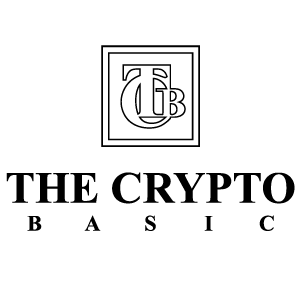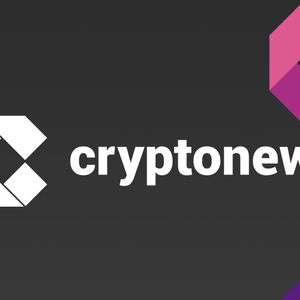Summary I explore the potential approval of an Ethereum spot ETF by the SEC, considering factors for and against approval. Ethereum's strong network effect, battle-tested blockchain, and staking yield appeal to institutional investors, potentially swaying the case for an ETF. However, Ethereum's centralization tendencies and concerns over its classification as a security may delay the approval of an ETF. The SEC and CME have given conflicting messaging on whether Ethereum’s a security. Thesis This article explores the narrative of an “impending Ethereum spot ETF” including factors both for and against such approval by the SEC (Securities & Exchange Commission). Ethereum’s a highly rated blockchain, it’s battle-tested and has a strong Network Effect In addition, staking provides a “low-risk” return – something that Bitcoin cannot do. These characteristics will appeal to institutional investors which may sway the case for a spot ETF in its favor. Blackrock’s one of the issuers hoping to have an approved ETF, lending legitimacy to the cause. However, Ethereum’s centralization tendencies could make the SEC reticent on its approval. This could postpone an ETF until clear “rules of the road” are enacted by the U.S. Congress under a new administration. Introduction Ethereum ( ETH-USD ) is a distributed blockchain platform for smart contracts and decentralized applications. Ethereum’s smart contracts have enabled the creation of various new assets and industries such as Decentralized Finance ((DEFI)), NFTs and DAOs (for governance)…Ethereum uses a Proof of Stake (PoS) consensus mechanism where validators secure the network and participate in block production. Ratings Framework Ethereum is rated highly under my Ratings Scorecard which includes over 12 factors. (Other top projects I’ve written about are Polkadot ( DOT-USD ) and NEAR ( NEAR-USD ). While Ethereum’s rating is out of scope for this article, in summary the project rates below-average under Vitalik Buterin’s Blockchain Trilemma (e.g., Decentralization, Scaleability, Security) as well as User Experience. It rates well for Ecosystem development, Funding, Developers, Management team, Roadmap, Use-Case, Tokenomics and Social Engagement. Ethereum also benefits from Lindy’s Law as it’s been around for a decade and has been copied, forked and battle-tested. Bitcoin’s Spot ETF Approval The January 10 th approval of 11 spot Bitcoin ETFs has been nothing but a success. I said the event would be a “sell the news” story and I was correct for exactly one second. There have been $12Bn in inflows since the January launch and recent data suggests the ETFs will hold over 7% of all Bitcoin. These ETFs are buying over 8,000 BTC/Day while Miners are producing just 900/Day (and that’s pre-halving !) Inversion Thinking in the Face of Euphoria As Bitcoin Economics 101 would dictate: “less supply + rising demand = Moon.” Given the raging success of Bitcoin ETFs, everyone’s now thinking “Ethereum’s next.” Below I’ll try to cover all the reasons why we’re getting an Ethereum ETF, or not. This mental-model became popularized during Charlie Munger’s 2007 USC Commencement speech in which he said he takes the other-side of arguments in order to fully understand them. As a side-note, Munger threw this Inversion Thinking out the window when asked about crypto saying there is no other side – it’s “ rat poison .” If, at the end of this article, you come out disagreeing with me, then perhaps I’ve done my job! Ethereum’s similarities to Bitcoin Ethereum has many similarities to Bitcoin which gives it a good pole-position for a spot ETF. It has a large market cap ( second after Bitcoin), it has no inflation (below Bitcoin’s), is considered an institutional blockchain and has been around for a decade. Further, both Bitcoin and Ethereum exhibit safe-haven characteristics within the overall cryptocurrency market, meaning their volatility is much lower than most cryptocurrencies. Institutions, whether that’s an endowment, pension fund or bank, are by their very nature, risk-adverse. They have to deal with all sorts of stakeholders and regulators which reinforces risk-avoidance and taking baby-steps. They won’t be interested in an asset until it’s surpassed a certain market capitalization, liquidity, trading volume and yield. Ironically, this means waiting for the price to skyrocket before being interested in the asset…Hmm.. The table below highlights ETH’s high liquidity from multiple levels: high market cap, high trading volume and low slippage. In fact, Ethereum’s Liquidity Score (right-most column) is even higher than Bitcoin’s. CoinMarketCap Futures markets There is a strong, lively market for Ethereum futures. This factor is cited as one of ETH’s strongest factors for why an ETF should be approved. The above, combined with the existence of Ethereum futures ETFs , solidifies proponents’ case for a spot ETF approval. Open interest on Ethereum is high. It’s over $12Bn as of March and nearly $17Bn on annualized-basis. The Block Further supporting the case for an Ethereum spot ETF is that the Chicago Mercantile Exchange classifies crypto futures as a commodity. Thus, the approval of Ethereum Futures implicitly classifies Ethereum Spot as a commodity. While I’m comfortable with ETH futures liquidity, the ETFs that are based on them have characteristics of low liquidity. Remember, the SEC wants liquidity before it approves an Ethereum ETF. For example, since launching in Fall of 2023, these ETFs have had small AUMs (i.e., assets), trading volume has been low, expenses are high and tracking error has been huge. Below is an example of tracking error for one of the largest, ProShares Ether Futures Strategy ($83MM in assets). ProShares Blackrock’s involved Analysts have pointed to the smoother approval of the Bitcoin spot ETF after Larry Fink got involved. As many are well aware, Blackrock is the world’s largest asset manager and its ETF approval record has been nearly flawless. Their involvement also increases the legitimacy of Bitcoin and Altcoins. In November 2023, Blackrock filed for an Ethereum spot ETF; however the SEC has continued to delay approval. I believe the SEC, under Gary Gensler, has been reticent to approve any crypto ETF, especially since Mr. Gensler is seen as seeking approval of Senator Elizabeth Warren (D-Mass) who’s extremely anti-crypto . Is Ethereum a Security? The Howey Test Both Gary Gensler and Elizabeth Warren are suspect of cryptocurrencies but for different reasons. Ms. Warren worries over money-laundering while Mr. Gensler worries over crypto projects not filing (i.e., registering) under the Securities and Exchange Act of 1933 and “consumer protection.” The SEC believes Altcoins are securities under the Howey Test of 1946. The SEC’s specific framework for cryptocurrencies can be found here . The SEC has “regulated” crypto by enforcement given that the U.S. Congress has failed to pass bipartisan legislation. The SEC has focused its efforts on centralized exchanges such as Binance and Coinbase, but it’s possible it will go after some of the larger market cap coins in the future. Despite July 2023’s favorable summary judgement towards Ripple Labs (i.e., XRP) drilling into the details reveals that institutional sales of XRP met the Howey Test (meaning XRP is a security). Further complicating matters is the 2018 Bill Hinman (SEC) speech in which he classified Ethereum as a commodity; however, that too was highly controversial reading behind the scenes. I personally believe Ethereum is a security, especially since it will eventually be regulated, but making this decision is not clear-cut. Is Ethereum Decentralized? The Nakamoto Coefficient One of the largest factors determining whether an altcoin is a security is determining whether or not it’s truly decentralized. There are several ways of determining whether a blockchain project is “sufficiently decentralized” such as counting the number of validators. A growing trend has been to describe decentralization by reducing it to just one number, the Nakamoto Coefficient . High = Good, Low = Bad. However, answering this question requires a more nuanced approach. For example, are the validators diversified by geography or cloud hosting provider ? Is the software controlled directly or indirectly? Other factors are hardware costs and active-validator caps that limit block production from the largest validators and number of Validator Clients . While Ethereum is diversified in some areas, I believe overall it’s not sufficiently decentralized due to centralization at Staking Pools and this is confirmed by its very lower Nakamoto Coefficient of 2. Nakoflow.io Centralization at the Pooled-Staking level Ethereum’s overwhelming achievement moving from Proof of Mining to Proof of Stake (September 2022) had one negative effect: centralization. About 25% of ETH is staked and as this percentage rises, so will the centralization issue. It’s common knowledge that staking services such as Lido and liquid Re-staking services (e.g., EigenLayer) are centralized. There are many ways to stake Ethereum including staking on your home computer, through Liquid re-staking, Staking pools, Non-custodial Staking as a Service and Centralized Exchanges. Optimally, we would want users to stake at home or via a non-custodial staking service. However, most find it easier to simply use a staking pool. Centralized Exchanges also provide a similar service but the SEC’s pressured them to withdraw from staking services. (See the Kraken lawsuit for additional information.). In the chart below, you can see that Lido and Coinbase comprise 30.7% and 14.2% of staking share, respectively. Dune Analytics Centralization at Cloud Hosting providers Ethereum, like most blockchains is dependent on Cloud Hosting providers. As an overview, nearly half of Ethereum’s validators are hosted and 39% of those are to just one provider: Amazon AWS. A Cloud hosting company can simply decide to ban a blockchain from using its services. This is exactly what happened to Solana when Hetzner (which hosts 18% of Ethereum’s validators) banned Solana. Ethernode Censorship Resistance & Centralization Yet another way of analyzing decentralization is determining whether the blockchain could be controlled or influenced by governments, particularly the U.S. The United States Treasury Department’s Office of Foreign Assets Control (aka OFAC) is charged with sanctioning transactions. Readers and crypto-purists (who view code as a form of freedom of speech) may be surprised to hear that approximately 40% of all blocks on Ethereum are OFAC-compliant. This means those 40% of blocks comply with U.S. regulations. Thus Ethereum could be subject to government censoring and control as have Web2 companies (e.g., Twitter/X). For example, in August 2022, OFAC blacklisted Tornado Cash (on Ethereum Virtual Machine) for its role in laundering money. Given that Ethereum’s partially censored, the question is whether it reduces the odds of an ETF approval. Ironically, this “control” in this case probably increases its odds of approval since the controlling entity is the U.S. government ! MEVwatch.info Lack of Circumstantial Evidence supporting an ETH ETF According to Bloomberg’s ETF analyst Eric Balchunas, the likelihood of a spot Ethereum ETF by May 2024 is just 30% . These low odds are based on “radio silence” between ETF issuers and the SEC and little activity related to setting up infrastructure (e.g. trusts, CUSIP numbers) as had been the case prior to the spot Bitcoin ETF approval. As I write this article, Fortune announced that companies working with the Ethereum Foundation are being investigated by a “state authority” related to ETH being a security. This is not a good sign. Conclusion: As you can see, whether a blockchain is decentralized is not an easy task. We need to look at Ethereum holistically and determine if there are any single points of control. In this case, my answer is a “strong yes” because of rising centralization across Staking Pools. The question of whether we’re going to get an Ethereum spot ETF approval isn’t a matter of “If” but “When.” Given the above, I think it’ll be a while before the SEC approves a spot ETF. I welcome your comments and feedback below.












